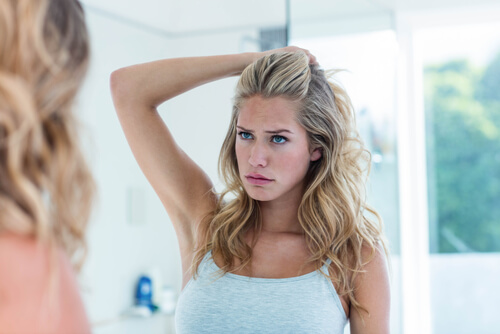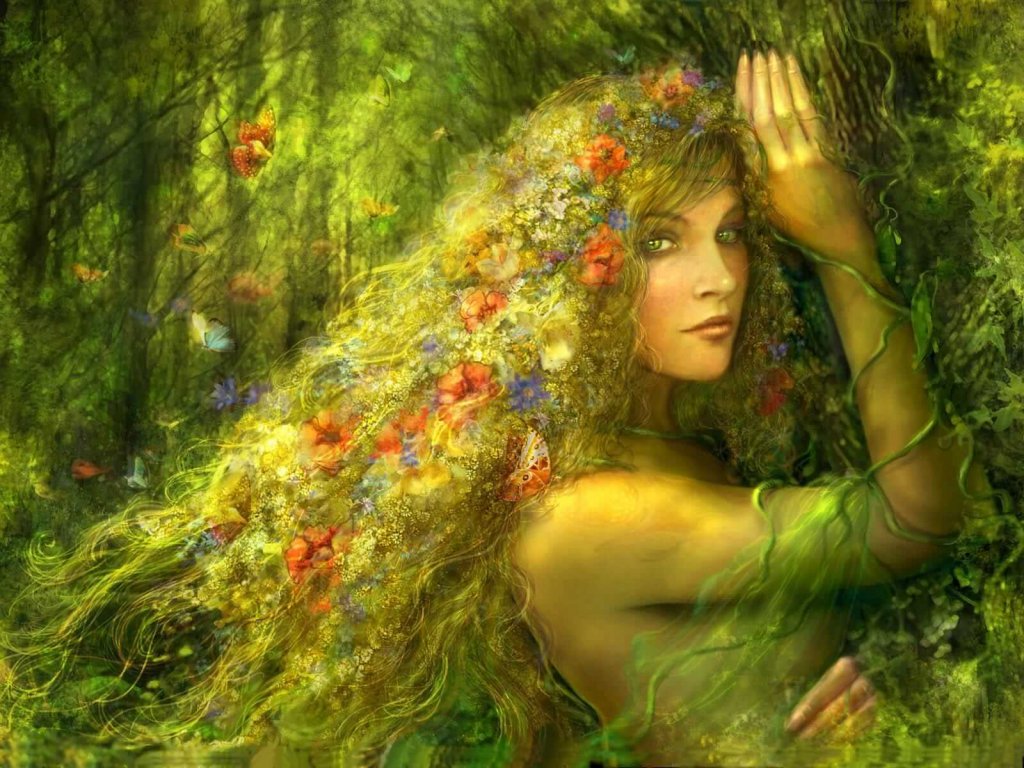True Beauty: Self-Confident Women

Beauty is an abstract concept, linked to may aspects. A woman may feel beautiful when she possesses physical health, sensuality, or symmetry. Believing she is beautiful and feeling beautiful can produce feelings of attractiveness and well being. Self-confident women are the most beautiful.
The characterization of a woman as beautiful, whether it be an individual opinion or that of a community, is often based on a combination of internal and external beauty. Internal beauty includes psychological factors, while external beauty is based on physical features. External beauty is usually measured by a general consensus on what one culture finds attractive. On the other hand, internal beauty is much more difficult to quantify.
The image we have of our body is a mental representation of the physical figure, it’s form and size. Historical, cultural, social, individual, and biological factors influence this image and change over time. Cultural norms about beauty play an important role in the relationship between a woman’s physical appearance and her self-esteem.
Beauty makes the one who appreciates it, not the one who possesses it, happy.
To become self-confident women, we must learn how to feel beautiful
In a Garner study of 4,000 people, 56% of women described being unhappy with their physical appearance. Furthermore, 89% wanted to lose weight, and 15% had used weight loss strategies for at least 5 years of their life.

The fact that 89% of women want to lose weight shows how unattainable and fictitious the measures of feminine beauty are. For genetic and biological reasons, there are many different kinds of beauty. If we compare ourselves to the impossible measures that only 10% of the population can achieve naturally, we will always be “ugly”. Even models who measure up to the “ideals” of beauty and fashion have also expressed dissatisfaction with their bodies. For example, Irina Shayk confessed that she feels insecure and ugly.
Women who don’t feel beautiful develop a style of passive emotional coping when faced with their image. Conversely, active emotional coping refers to actions taken to gain control of the situation. This coping style involves the psychological activation of our resources to do things such as manage stress.
Current studies show that women are less influenced by their body mass index, and more influenced by the image they have of themselves.Therefor, a woman with model features who has a passive coping style when it comes to her body may not feel beautiful. However, a woman with less “popular” features, using an active coping method, may feel more beautiful because she has a better perception of her self-efficacy.
“Everything has beauty, but not everyone can see it.”
-Confucious
Self-confident women and beauty
Really, the western beauty standard is handicapped because extreme thinness is the prototype for what women should look like. This beauty ideal, as unattainable as it is extreme, has been internalized by many women. In return, women have experienced negative effects on the way they see themselves.

Negative self-concept influences the manner in which a woman confronts her self image. We develop our self-concept through interactions with others. The environment in which we live plays a very important role. If, everyday, women receive information about how their bodies should look, our self-concept will diminish. This is especially true if we don’t try to control our own resources and strengths.
Beyond external beauty exists the sometimes forgotten internal beauty. A person can look and feel more beautiful because of their psychological characteristics, such as elegance, charm, grace, integrity, intelligence, congruence, and empathy. So, in short, perceiving our self-efficacy makes us feel more beautiful.
“ The beauty that first catches the eye is rarely the same beauty that wins the heart.”
-Ortega y Gasset
Beauty is an abstract concept, linked to may aspects. A woman may feel beautiful when she possesses physical health, sensuality, or symmetry. Believing she is beautiful and feeling beautiful can produce feelings of attractiveness and well being. Self-confident women are the most beautiful.
The characterization of a woman as beautiful, whether it be an individual opinion or that of a community, is often based on a combination of internal and external beauty. Internal beauty includes psychological factors, while external beauty is based on physical features. External beauty is usually measured by a general consensus on what one culture finds attractive. On the other hand, internal beauty is much more difficult to quantify.
The image we have of our body is a mental representation of the physical figure, it’s form and size. Historical, cultural, social, individual, and biological factors influence this image and change over time. Cultural norms about beauty play an important role in the relationship between a woman’s physical appearance and her self-esteem.
Beauty makes the one who appreciates it, not the one who possesses it, happy.
To become self-confident women, we must learn how to feel beautiful
In a Garner study of 4,000 people, 56% of women described being unhappy with their physical appearance. Furthermore, 89% wanted to lose weight, and 15% had used weight loss strategies for at least 5 years of their life.

The fact that 89% of women want to lose weight shows how unattainable and fictitious the measures of feminine beauty are. For genetic and biological reasons, there are many different kinds of beauty. If we compare ourselves to the impossible measures that only 10% of the population can achieve naturally, we will always be “ugly”. Even models who measure up to the “ideals” of beauty and fashion have also expressed dissatisfaction with their bodies. For example, Irina Shayk confessed that she feels insecure and ugly.
Women who don’t feel beautiful develop a style of passive emotional coping when faced with their image. Conversely, active emotional coping refers to actions taken to gain control of the situation. This coping style involves the psychological activation of our resources to do things such as manage stress.
Current studies show that women are less influenced by their body mass index, and more influenced by the image they have of themselves.Therefor, a woman with model features who has a passive coping style when it comes to her body may not feel beautiful. However, a woman with less “popular” features, using an active coping method, may feel more beautiful because she has a better perception of her self-efficacy.
“Everything has beauty, but not everyone can see it.”
-Confucious
Self-confident women and beauty
Really, the western beauty standard is handicapped because extreme thinness is the prototype for what women should look like. This beauty ideal, as unattainable as it is extreme, has been internalized by many women. In return, women have experienced negative effects on the way they see themselves.

Negative self-concept influences the manner in which a woman confronts her self image. We develop our self-concept through interactions with others. The environment in which we live plays a very important role. If, everyday, women receive information about how their bodies should look, our self-concept will diminish. This is especially true if we don’t try to control our own resources and strengths.
Beyond external beauty exists the sometimes forgotten internal beauty. A person can look and feel more beautiful because of their psychological characteristics, such as elegance, charm, grace, integrity, intelligence, congruence, and empathy. So, in short, perceiving our self-efficacy makes us feel more beautiful.
“ The beauty that first catches the eye is rarely the same beauty that wins the heart.”
-Ortega y Gasset
This text is provided for informational purposes only and does not replace consultation with a professional. If in doubt, consult your specialist.







